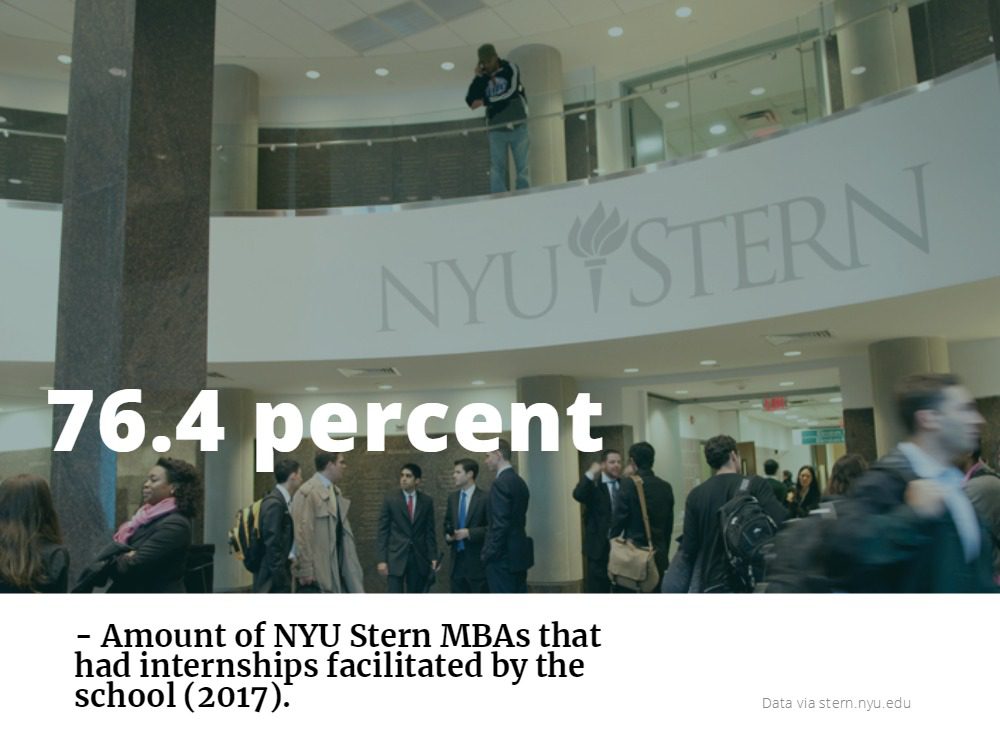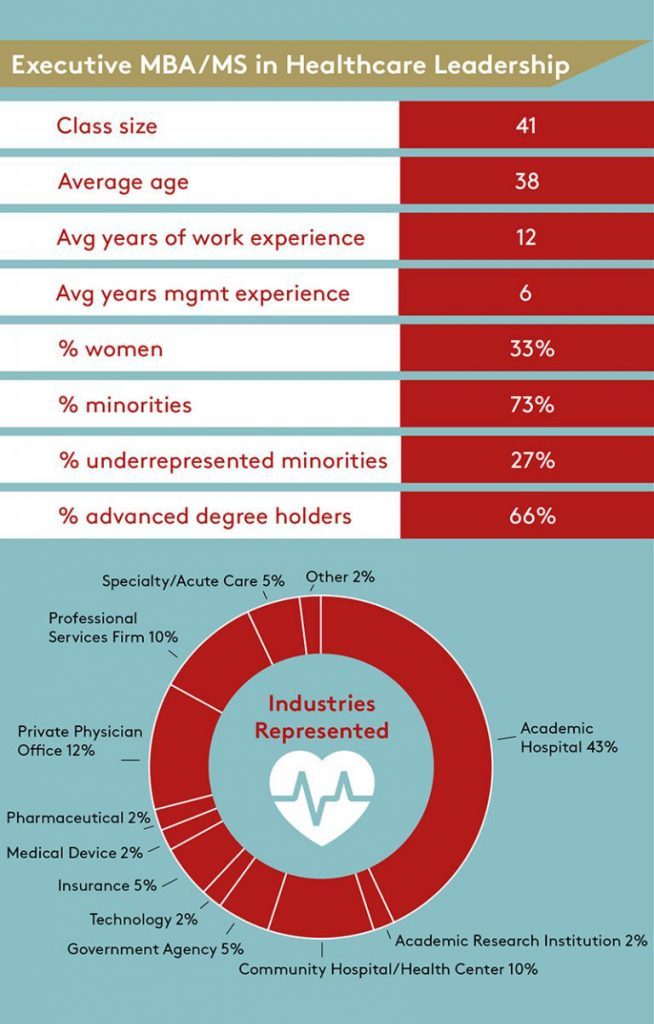What is a Summer Internship and Why Should I be Interested?

The idea of an internship may evoke images of coffee runs and paperwork for many business students, but in reality summer internships can be a crucial—and incredibly lucrative—part of every student’s business education and early career.
Around the country and world, top companies open their doors each summer for students interns to gain on-the-job experience, make professional connections, and get a glimpse at what their post-MBA future has in store. Many business schools now even require an internship between a student’s first and second years in their MBA program.
But what really is a summer internship, and why is it seen as so important for MBA students? We take a look at why the summer internship plays such a crucial role for business students, and the ways you can make the most of your experience.
What is a Summer Internship?
Although the idea of internships began as an opportunity for medical students to gain hands-on experience in the field, they can be found today in nearly every industry, organization, and type of institution. From massive corporations to the smallest nonprofit, summer internships have become a key part of both running a business and starting a career. And with the win/win nature of most summer internships, it’s understandable why: the student gets to spend their summer break making connections, gaining experience, and often making money, while the company gets temporary help from someone who just might eventually become a dedicated employee. Because of the invaluable on-the-job skills attained during an internship, many business schools now even require them between a student’s first and second year.
But the reason to get a internship goes beyond the experience that can be gained over the course of a summer or semester: a LinkedIn survey looked at the 3.5 million users with internships in their job history and discovered 600,000 users who returned to those same companies in full-time positions. Furthermore, he industries in the survey that boasted the highest likelihood of an internship becoming a full-time job are well aligned with an MBA’s experience—31 percent of internships in accounting and 25 percent of internships in management consulting became full-time jobs.
Even for those who don’t return to the same company they interned for to work full-time will find that having an internship on their resume speaks volumes for potential employers. With 86 percent of employers looking to hire recent MBA graduates (according to a GMAC survey)—a figure that continues to grow—it’s more important than ever to be able to easily demonstrate your value and experience to prospective employers.
How Do I Find a Summer Internship?
While it’s not impossible for students to venture out on their own and apply directly for internships they want, one of the best parts of being in an MBA program is having the support and resources of the business school behind you. Especially since so many programs now require internships as part of the MBA process, the university has become a crucial part of helping students to find the perfect internship for their interests and career goals.
A quick look at employment reports from a major university like NYU’s Stern School of Business can reveal just how important a school’s career development office can be when it comes to finding that perfect internship. At NYU Stern, 76.4 percent of internship offers accepted by the Class of 2017 were facilitated by the school, compared with just 23.6 percent initiated by the students. And while roughly half of the offers initiated by students came from existing personal contacts, the school facilitated offers came from a variety of different sources. Whether it was on-campus scheduled interviews at the school, job postings, Stern supported activities like clubs and conferences, business school alumni or career fairs, the school was able to lead students to internships in consulting, entrepreneurship, healthcare, media and entertainment, and more.

Why Other Benefits are There to a Summer Internship?
Even if the thought of building a professional network and opening the potential for full-time employment through an internship sound appealing, it’s likely you still have money on the mind. It’s understandable, too, since so much of the discussion surrounding internships today bring one word to mind: unpaid.
It’s certainly true that unpaid internships make up a large portion of the summer internships that are available, and for many students it’s not fiscally possible to lose a summer of working to gain professional experience. Thankfully, business schools understand this and strive to find students internships that will not just fit their career goals but their financial goals as well.
Due to the level of the work and time commitment, most internships for MBAs are paid, and often pay quite well. So no need to sacrifice career growth for summer funds—in fact, the two things go together perfectly! While it varies slightly by industry, summer interns in the Class of 2018 at Northwestern University’s Kellogg School of Management made a monthly average salary of anywhere from $3,500 (nonprofit industry) to $10,734 (consulting).
Summer internships can be a crucial part of the MBA experience, and it’s clear to see why: with the potential of an internship to turn into a full-time job and the financial benefits of the experience, MBAs should be banging down the door for the opportunity. But thankfully they don’t have to. Business schools and their career development offices have made it a priority to get students the internship of their dreams at the salary perfect for their wallets.
In Search of the Best Chicago Internships for MBAs

Chicago is an ideal place to earn an MBA. In addition to having some of the strongest business schools in the country, the Chicago area is home to nearly 40 of the Fortune 500 companies. The bustling metro is also the financial and cultural hub of the Midwest, making it an ideal place for major corporations to set up large outposts. This means a wealth of internship program opportunities for MBAs at the start of their careers. So, for those with the gusto to live in the gustiest metro, the rewards can be huge. Below, we’ve laid out at which companies Chicago MBAs most often seek internships with.

Given Amazon’s involvement in nearly every industry, it is no surprise that the company is on the hunt for innovative MBAs to help maintain its dominance and status as the world’s greatest internet retailer. The mammoth corporation assigns interns a project for which they will partner with clients to glean true insight into the inner-workings of the company.
According to the Wall Street Journal, “Amazon took in more interns from the University of Chicago’s Booth School of Business than either Bain & Co. or McKinsey & Co., which were until recently the school’s top hirers of interns …” Amazon also offers many interns the opportunity to come back to work at the company full-time.
Just last year, Amazon was a major player in hiring Chicago Booth School of Business MBA graduates and interns. Twenty-six graduates managed to earn a full-time job with the company, while an impressive 33 interns joined its ranks, which was the single highest total among all companies that employed Booth interns.
The companyalso brought in students from nearby Indiana. Several Class of 2018 MBA students from the Notre Dame University Mendoza College of Business earned vital internship program experience at Amazon, which often leads to direct hiring.

Many of the companies hiring MBA interns offer exposure to retail, tech, and financial services, or consulting. But Abbott Laboratories, headquartered in Lake Bluff, Illinois, is a popular internship destination for MBAs interested in pursuing a career in pharmaceuticals. The Commercial MBA Internship allows interns to get their foot in the door of this massive and growing industry.
Several MBAs at the Kellogg School of Management at Northwestern University joined Abbot Laboratories, according to the school’s most recent employment report, joined the company’s summer internship program.

Deloitte, which has a Chicago office located right near the iconic Willis Tower, employs 40,000 people in the U.S. The company’s Client Service Internship can take place throughout the course of a semester or over two months during the summer. Consulting tends to be a popular area of focus for MBA grads, but Deloitte also offers a plethora of opportunities for advanced degree students interested in financial sectors such as auditing and tax. Depending on their interests and professional backgrounds, interns can join a client service team in Deloitte & Touch LLP, Deloitte Tax LLP, Deloitte Risk and Financial Advisory, or Deloitte Consulting LLP. According to The Balance, summer interns at Deloitte can make anywhere from $3,850-$12,000 per month. Deloitte also made Fortune’s list of “25 Top MBA Employers.”

Around 50 percent of McKinsey & Company’s incoming hires have MBA degrees, so business school recruiting is a high priority for the mega firm. The consulting giant—which now has over 120 offices worldwide—was actually founded in Chicago in the 1920s, so it makes sense that the company is one of Chicago metro’s most active MBA recruiters. Though gaining entry to the elite consulting firm is extremely competitive, both University of Chicago’s Booth School of Business and Northwestern University’s Kellogg School of Business have been able to claim the company as one of the top places their MBA students land for internships and full-time employment after graduation.
In fact, no company hired more Booth grads than McKinsey and Co. The company managed to snag a staggering 48 employees from the business school last year, which accounted for nearly 10 percent of the entire Booth MBA Class of 2017. Not so surprisingly, McKinsey also brought in 26 Booth interns within the same year—the second most among any employers in that time frame.
So, what should an MBA at in the McKinsey internship program expect? According to the firm’s website, MBA interns “… join us as associates, working either as generalists or practice consultants if they have and area they’d like to focus on.”
The Best Business Schools for Landing Top Consulting Jobs

Clear Admit recently explored which business schools help prepare MBAs the most for a career in consulting, which you can read below.
With starting salaries in the $140,000 to $150,000 range and a customary $25,000 signing bonus on top of that, it’s no wonder so many business school students target the prestige consulting firms known as the “MBB”—McKinsey & Company, Boston Consulting Group (BCG), and Bain & Company—as their post-MBA landing pads. That $170,000+ annual compensation package can quickly cut any MBA loan debt you may have taken on down to size.
Indeed, management consulting has been one of the most coveted career paths for fresh MBA grads for ages. And though the technology industry has in recent years been stealing some grads from the consulting industry’s traditional slice of the pie, the most recent MBA employment reports reveal that consulting is already making a comeback against tech at certain schools.
The opportunity to work with a range of clients comprised of many of the world’s most celebrated businesses across industries—tech included—is part of the appeal of consulting. In many ways, a top consulting gig allows MBA grads to continue their management education while getting paid for it—and further honing their skills and expertise by helping solve a wide variety of business challenges. And, not for nothing, breaking into the MBB is a highly competitive pursuit—one that almost assures that your colleagues will be smart, driven people you’ll get a lot out of working with.
Finally, where the top consulting firms are choosing to find their talent reflects on the quality of the education those schools’ students are getting. In many ways, the hiring practices of the MBB can serve as a gold star standard of sorts for MBA programs.
Elite Firms Hire Grads from Elite Business Schools
The crème de la crème of leading business school talent has headed toward the top consulting firms for decades—and performed well there—creating a virtuous circle of sorts in which the firms’ appetite for such talent only grows. And while this piece focuses on MBB, we should note that a host of other consulting firms—Deloitte, A.T. Kearney, Accenture, Strategy&, and Oliver Wyman among others—are also highly prized post-MBA destinations.
If you are looking to see which business schools send the greatest percentage of their graduates into consulting overall, don’t miss our September 2017 analysis of leading consulting industry feeder schools. Which schools top the list? And what stands out about how these schools successfully train students for careers in consulting?
Looking at Class of 2016 graduates, the University of Virginia’s Darden School led the pack, with 38 percent of its graduates heading into consulting. Columbia Business School was next, sending 35 percent, followed closely by Northwestern University’s Kellogg School of Management, which sent 33 percent.
The 2017 employment reports, which have been released since our analysis last fall, show some shifts year over year. Darden tied with Emory’s Goizueta School of Business in terms of the percentage of Class of 2017 grads who headed into consulting, with each school sending 34 percent. Close on their heels were Columbia, Duke’s Fuqua School of Business, Northwestern’s Kellogg School of Management, and Dartmouth’s Tuck School. All four sent 33 percent of their most recent graduating class off to consulting firms.
2 Non-U.S. Schools Lead All Others in Consulting-Bound ’17 MBA Grads
But year after year, one thing remains the same. INSEAD, with campuses in France, Singapore, and Abu Dhabi, beats all leading U.S. business schools when it comes to consulting. INSEAD’s 2016 MBA employment report, detailing employment outcomes for December 2015 and July 2016 INSEAD grads, shows that 46 percent went into consulting. And the most recent figures reveal that almost a full half—49 percent—of the 1,029 students who completed the INSEAD MBA program in December 2016 and July 2017 chose to either enter or return to the consulting field.

We should note here that INSEAD is distinct from many other schools in that it includes sponsored students who are returning to their pre-MBA employers among its hiring stats. This is in contrast to many U.S. schools, where the reported number and percentage of students hired by sector and employer corresponds to those students actively seeking employment, excluding sponsored students. Of the 49 percent of INSEAD 2017 grads headed into consulting, 33 percent were new hires and the remaining 16 percent were returnees.
London Business School (LBS) was the runner-up for the Class of 2017, sending 41 percent of grads into consulting. This was a 6 percentage-point gain over the school’s previous class of MBA graduates. Like INSEAD, LBS’s reported sector designation and top employer information includes sponsored students, only its employment report does not disclose what percentage of the class those returning students represent.
U.S. News Reveals Sneak Peek of Its 2019 Business School Rankings

With just over a week before U.S. News & World Report reveals its eagerly-anticipated 2019 best business school rankings, the publication offered a sneak peek of the business schools that managed to earn spots within the top 10.
Unsurprisingly, the top 10 of the 2019 rankings resembles the publication’s 2018 edition, with nine out of the top 10 schools nearing the top of the annual list. The lone ranking variation from 2018 to 2019 will be the University of Michigan Stephen M. Ross School of Business, which came in 11th in the previous year.
The top ten business schools for the 2019 U.S. News rankings are as follows (unordered):
- The Wharton School at the University of Pennsylvania
- Harvard Business School
- The Booth School of Business at the University of Chicago
- The Kellogg School of Management at Northwestern University
- The Ross School of Business at the University of Michigan
- The Tuck School of Business at Dartmouth University
- The Sloan School of Management at MIT
- The Stanford Graduate School of Business
- University of California—Berkeley (Haas)
The one school left out of the newest rankings from the previous edition was the Yale School of Management.
The publication will release the full list of the 2019 best business school rankings will officially arrive on March 20, 2018. Stay tuned for more updates on the rankings on MetroMBA.
Bloomberg Businessweek Praises Rutgers, and More – New York News

Let’s explore some of the most interesting stories that have emerged from New York business schools this week.
Bloomberg Ranks Rutgers MBA No. 1 in the Northeast in Job Placement – Rutgers Business Blog
In its “Best Graduate Business Schools of 2017 ” survey, Bloomberg Businessweek ranked Rutgers Business School (Newark, New Brunswick) as the top business school in terms of job placement within the Northeastern United States,. coming in second overall in the United States. Andy Heller, RBS MBA ’11 and current senior associate director of payor and health system marketing at Boehringer Ingelheim sang Rutgers’ praises in terms of preparing him to succeed in the corporate world.
“That kind of experience has helped me each and every day since graduation. Having diverse perspectives on our team ensured that our solutions would be differentiated, yet relevant, and impactful,” Heller notes.
In addition, RBS topped its fellow Big Ten competitors when it came to return on investment, narrowly edging out the University of Iowa College of Business, and Northwestern University’s Kellogg School of Management. The latter of which offered a higher multi-year ROI for potential MBA students, but cost much more in terms of tuition.
Read more about Rutgers’ rankings and accolades here.
Are You a Good Fit for the Executive MBA/MS in Healthcare Leadership Program? – Johnson Business Feed
The Executive MBA/MS in Healthcare Leadership program at Cornell’s SC Johnson School of Management “integrates the general management curriculum of Johnson’s Executive MBA programs with the deep healthcare expertise of Weill Cornell Medicine’s Healthcare Policy and Research Department.” The joint program was developed to “reflect the future of healthcare” and help “sharpen and deepen the skill sets of healthcare professionals through business and healthcare leadership education,” according to the school.
“Today’s healthcare leaders need to be open to knowledge from different vantage points so they can advance progressive healthcare agendas, locally and nationally. Many healthcare leadership programs are exclusively for physicians. However, as we developed this new program, the physicians we spoke to expressed interest in an executive healthcare program that welcomed non-clinicians from different sectors of healthcare—not just practitioners.”
Take a look at the makeup of the Executive program below:

You can read here to learn more about what the program looks for in terms of applicants.
Rewiring Hidden Biases for Better Outcomes – Gabelli Connect
Fordham University’s Gabelli School of Business recently hosted a talk by Harvard professor of social ethics Mahzarin Banaji who unpacked the hidden biases of well-intentioned people—that is, “the beliefs that live in the subconscious and are formulated due to various exposures throughout one’s life.”
Banaji explains:
“A bias is nothing more than a tilting away from neutrality. There’s bias in the mind of the receiver and the applicant. We have to work with the very groups that are holding themselves back and educate those who are holding them back. We are capable of change by how many times we stretch those muscles.”
Learn more about Banaji’s take on unconscious biases here.
Berkeley Charity Study Examines How We Often Dehumanize Those in Need

An often-seen angle of charity is that the recipient is down on their luck, destitute, and in need of outside assistance; but that imagery may play into a indirect dehumanization of those in need, and make things worse than before, writes Berkeley University Haas School of Business assistant professor Juliana Schroeder.
Schroeder, who’s research focuses on “judgment, decision-making, and interpersonal and intergroup processes,” criticizes the way in which charities like Sally Struthers’ Christian Children’s Fund portray its aid recipients as helpless victims may “unintentionally send a signal they have low mental capacity.”
“Charities want to motivate people to give more, but they may also make people think poor people don’t have the ability to take care of themselves. If you perceive of someone as having less mental capacity to think or feel, then you are subtly degrading and dehumanizing them,” she explains.
Schroeder, along with Northwestern’s Adam Waytz and University of Chicago’s Nicholas Epley, published a new study in the Journal of Experimental Psychology, which reveals “fundamental truths about how people think about giving and receiving aid.” The researchers found that not only do people act “more paternalistically towards those they believe have lower mental capacity,” but that they also “often believe they have more mental capacity than others.”
Schroeder explains, “When you think of a person having less self-control and willpower, you think they will make bad decisions and will be more likely to waste the aid. They don’t know what is good for themselves. People are pretty convinced they have a lot of willpower, while others don’t have the same level of self-control.”
The good news is that these perceptions are malleable. By questioning them, we can begin to “question how our perceptions of ourselves and others may affect the way we behave.”
Schroeder concludes, “When you dehumanize an individual or a group it can affect how you help them. People can be more cognizant about the ways they are thinking about their own mental capacity and that of others and pause to get more information before they start helping.”
